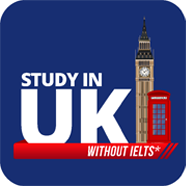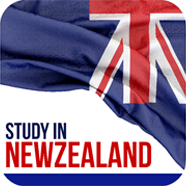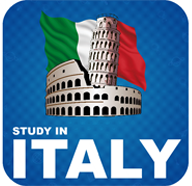Canada
Study in Canada
International students have been coming to Canada to study over the last decade, particularly from Asian nations such as India and China. The number of overseas students in Canada has risen steadily throughout the years and is expected to top 642,000 by 2020. According to the most recent Immigration, Refugees, and Citizenship Canada (IRCC) data, 404,000 additional study permits will be issued in Canada in the year 2020. The provinces of Ontario, Quebec, and British Columbia benefit the most from international students studying in Canada. In addition, nearly 500,000 students have obtained study visas in Canada. India, China, and Korea account for a significant portion of this population.
| International Students | Avg. Living Cost/year | Universities |
|---|---|---|
| 642,480+ | C$14,904 | 97 |
| Intakes- | Average graduate’s income/year |
Indian Students |
| January & September | $48,546 | 2,20,000 |
Why study in Canada?
Apart from the fact that Canada has world-class universities, there are various reasons why overseas students want to study here. Some of them are addressed in further depth, including:
● Canadas convenient visa policy
It welcomes overseas students with open arms. In addition, students can live abroad more easily thanks to immigration-friendly regulations and multi-cultural cities.
● Quality education at a low cost
Canada, which is regarded as a better study destination than the United States, guarantees that its students obtain a high-quality education at a low cost. As a result, the cost of education in Canada is cheaper, and the number of scholarship options accessible is higher.
● Declining foreign acceptance rates in the United States
The acceptance rate of the US F1 visa has decreased, allowing Canada to become the second most popular study destination.
● The International Education Strategy (2019-2024) of Canada aims to strengthen international relations and diversify the education industry.
● There are several similar career possibilities for both natives and immigrants:
Both residents and foreigners may find employment in Canada’s labour market, which caters to all types of work profiles.
Cost of studying in Canada:
| S.No. | Study level | Average fees (in CAD) |
|---|---|---|
| 1 | Undergraduate bachelors degree |
7,700 - 23,200 |
| 2 | Postgraduate masters degree |
11,600 - 27,000 |
| 3 | Doctoral degree | 21,000 to 105,000 |

Work in Canada
Canada has a wide range of career possibilities in a variety of fascinating industries. As a result, many immigrants have chosen to work in Canada because of the promise of good pay and high quality of life. Canada’s technology sector is booming. Finding a job in the Information and Communications Technologies (ICT) industry in Canada should be a snap
with over 41,500 firms to pick from. Because IT jobs in Canada are in such great demand, both British Columbia and Ontario have developed Tech Specific incentives to attract highly qualified and experienced foreign tech professionals to live and work in Canada. Some of the most popular job sectors in Canada include-
● Registered Nurses
● Vocational Instructor
● Management Consultant
● Software Engineer
● Physiotherapist
Apart from the occupations mentioned above, Doctors, Dentists, and Miners/Gas Drillers would be in high demand. These will be some of Canada’s highest-paying positions. Furthermore, there will be a significant demand for the jobs listed below.
● Pharmacist
● Customer service representative
● Industrial Electrician
● Truck Driver
● Aerospace Engineer
● Financial Advisor
Steps for Studying in Canada:
1. Research Your Options- This is a critical step in your academic career in Canada. You should concentrate on your further education objective to be practical and adaptable. Determine what you want to study, where you want to live, the total cost, the numerous options, and the educational, social, and cultural experience you
desire.
2. Choose universities- In Canada, there are several colleges and courses to choose from. Select some institutions and study programs that suit your requirements and to which you intend to apply.
3. Entrance Preparation- Prepare for standardized examinations such as TOEFL,GRE, GMAT, IELTS, and others based on university and college prerequisites. You must register for these examinations ahead of time. When applying for examinations, keep in mind that you should plan ahead of time if you need to repeat the test. Before September, the exams should be completed.
4. Make a financial plan- Make sure you have enough money to cover your whole stay in Canada, including housing, local transportation, food, clothing, and other incidental expenditures. Plan how you’ll pay for your studies, whether it’ll be from personal savings, school loans, student grants, or an assistantship.
5. Apply to colleges and universities- For entrance requirements, contact each university individually. Each institution in Canada has its unique admissions criteria. I gathered all of the required paperwork for my university application. Prepare and submit applications far ahead of deadlines.
6. Confirm admission- Make a decision on which institution you want to attend once you receive your acceptance letters or i20 from the universities you applied to. Notify the universities that have accepted the application of your decision. To secure your acceptance, pay a non-refundable deposit to the university you’ve chosen.
7. Look for accommodation- Examine your lodging choices. Consult your friends,family, and acquaintances who reside in the city where you will be visiting. Make an application for and confirm your lodging. Its a good idea to get in touch with the
Indian Student Body at the university where you’ll be studying. They may also be able to assist you with lodging alternatives.
8. Obtain a Student Visa- You can apply for a student visa once you have received confirmation of your admission. Before you travel to the consulate, make sure you have all of your documents in order. Its a good idea to speak with students who have previously obtained a visa to gain insight into their experiences and helpful advice.
9. Prepare for departure- You are almost through with your preparation for your studies in Canada. Make a list of everything you’ll need to bring, including papers, plane tickets, insurance, lodging, university fees, funds, costs, a bag pack, and other incidental items.
Top student cities in Canada-

1. Toronto:
Toronto is the location of Canada most prestigious university, U of T, which is located in the province of Ontario. It is also Canada’s largest metropolis and one of the most multicultural cities on the planet. With five of Canada’s major banks, the city is recognised as the country’s financial hub.

2. Vancouver:
This young Canadian city is the country’s third-largest metropolitan. It is considered the worlds most livable city. It is ideal for students who want to mix city life with easy access to the outdoors. It is home to universities such as the University of British Columbia, Simon Fraser University, University of Victoria, etc.

3. Montreal:
The concentration of post-secondary students in Canada’s second-largest metropolisis the highest. According to QS, it is also one of the Best Student Cities. McGill University, the University of Montreal, and Concordia University are all located here.

4. Edmonton:
Edmonton, the capital of the province of Alberta, is also known as the Festival City. It is home to the University of Alberta and provides students with generally pleasant weather to survive in Canada.
Apply For Sept 2021 Intake










